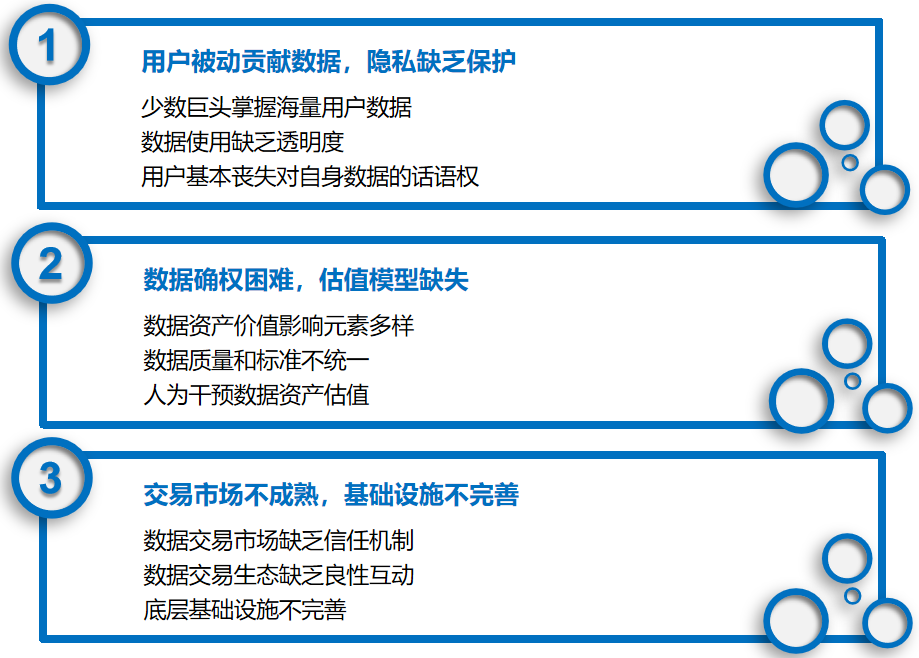Will big data + blockchain create a new Internet industry economy?

Fever in 2017, winter in 2018, and the return of value in 2019, the blockchain market is undergoing a new round of reforms, and it is back to the original intention of technology exploration and scene landing. From the government decision-making level to the industry practitioners, they are re-examining the role of blockchain technology in the development of the new era, embracing blockchain technology with a more positive attitude, and promoting the implementation of compliance applications.
At the same time, the landing of the blockchain industry is also facing a series of obstacles such as weak underlying infrastructure, insufficient vertical industry digging, frequent model projects, and homogeneous competition. The above-mentioned obstacles are largely due to the fact that the industry has not yet found a block. The lifeblood of chain industry integration cannot completely solve the pain points of the industry.
Blockchain is recognized as the underlying infrastructure in digital transformation, and data will be the core production factor in digital transformation. If the blockchain can be integrated with big data technology, it will cover many scenarios such as data confirmation, transactions, protection, and circulation. , Will certainly be able to break through the current industry bottlenecks.
- Ten minutes per session, understand the blockchain, "Ling Listening · Blockchain General 70 Lectures" is online
- QKL123 market analysis | Fed suddenly cuts interest rates unexpectedly, global panic has not retreated (0304)
- The wave of "absolute deflation" of platform currency is coming. How should the exchange make a choice?
1.Blockchain integrates big data, helping the development of the two major industries usher in an inflection point
The rise of network communications, algorithm technology, and artificial intelligence has exploded human data capabilities, and the world is presented to us with unprecedented clarity. The world economy has entered a period of transition from the old economy to the new economy with the transition from the information economy to the digital economy. Big data, as the core kinetic energy of the digital economy, will play a decisive role in the high-quality development of the economy.
With the breakthrough of digital technologies such as the Internet of Things, 5G, cloud computing, and artificial intelligence, data sources have been widely explored, data standards have become more consistent and standardized, and data transmission capabilities, processing capabilities, and analysis capabilities have ushered in breakthrough development. Data technology has the soil that takes root.
At the same time, policy trends in the field of big data at home and abroad have gradually become clear. First, compliance regulations are becoming more and more stringent. For example, the European General Data Protection Regulation (GDPR) and the "Data Security Management Measures" promulgated by the China Cyberspace Office all raise data security compliance to very high requirements. The attributes of data assets have been significantly enhanced. In November 2019, the Fourth Plenary Session of the 19th CPC Central Committee proposed that data and capital, land, knowledge, technology, and management should be juxtaposed as production factors that can participate in distribution, and further promote the process of data assetization. Big data technology has officially ushered in the golden period of development.
Along with the development and improvement of big data technology and the improvement of corporate data analysis awareness, more and more industries try to use big data technology to guide production services, deeply dig user data value, and improve the quality of personalized services. Industries that are closely integrated with big data are gradually infiltrating from advertising and marketing to government, finance, medical, education, transportation and other fields. Big data is gradually expanding to the entire industry.
According to a report released by the international authority Statista in August 2019, it is estimated that by 2020, the global big data market's revenue will reach US $ 56 billion, an increase of approximately 33.33% from the expected level in 2018 and an increase in market revenue from 2016. The size has doubled, and the growth rate is evident.
2. The pain points have been exposed one after another, and the "solution" is urgently needed.
In a high-growth, high-broadness development environment, the pain points of the big data industry have also been exposed:
The first pain point is that users passively contribute data and lack of privacy. In the current Internet environment, the "Matthew Effect" has begun to appear. A large amount of user data is held in a few giant companies, forming data islands. The lack of transparency in user data use, and cases of data abuse and privacy violations are common. The right to speak.
Blockchain technology can turn data into the only value asset that can be traded through trusted timestamps and identity stamps to achieve data confirmation. Users will have complete independent decision-making power over their own data use, allowing individuals to ensure fairness. On the basis of full transparency, conducting data transactions with trusted enterprises can not only meet the needs of users to enjoy big data services, but also avoid the risk of privacy leakage.
The second pain point is the lack of data confirmation and valuation models and the lack of evidence for data trading. The value of data assets is mainly affected by three factors: quality, application, and risk. When evaluating the value of data assets, not only must we comprehensively measure the quality factors such as the authenticity, integrity, and accuracy of the data, but also consider the actual application scenarios of the data. Under the application value, even factors such as legal restrictions and ethical standards need to be considered, and it is very easy for human intervention to occur.
Blockchain can solve the problem of data standardization through standardized and standardized data on-chain operations, and objectively evaluate the value based on the actual content of the data; at the same time, rely on smart contract technology to complete transactions between data supply and demand parties, minimizing the possibility of human intervention , Optimize data transaction links.
Pain point three: The data trading market is immature and the infrastructure is lacking. Since 2014, a number of data trading platforms have appeared in China, with rich data service methods, but there are also many problems: on the one hand, the market lacks a trust mechanism, data transactions are not standardized and there are large risks; on the other hand, there is also a lack of The benign interactive data transaction ecology, privacy, supervision and other issues have become increasingly prominent.

Blockchain technology can build a multi-party trusted network licensed by the government. Technology service providers, data providers, data transaction intermediaries, and regulatory agencies can participate in the network as nodes. Any transaction will be established after multi-party verification. , To ensure the fairness of data transactions, at the same time the characteristics of transactions can not be tampered and traceable, but also to provide a complete chain of evidence for subsequent rights protection and accountability, to build a virtuous circle of big data transaction ecology.
"Blockchain + Big Data" can promote data sharing across institutions, unprecedentedly let people, equipment, commerce, enterprises and society collaborate more efficiently, reduce the cost of trust of all parties, and greatly improve business and social operations Efficiency and value circulation. At the same time, the integration of the two also provides a convenient way for blockchain technology to deepen its cultivation in various vertical fields, truly break through the "model project" predicament of blockchain, and bring new blood to industry integration.
Blockchain, as an automatically implemented, open and transparent decentralized network protocol, will ensure that the rules of the value Internet are trusted to be executed, and will bring a new era of contract; big data, as the core production material in the digital economy era, will determine In view of the quality of future economic development, the integration of the two will not only realize the changes of the two major industries, but also accelerate the arrival of the digital economy era.
We will continue to update Blocking; if you have any questions or suggestions, please contact us!
Was this article helpful?
93 out of 132 found this helpful
Related articles
- Important Ethereum Capacity Expansion Solution: Optimistic Rollup Status Report (Part 2)
- February is another milestone, ConsenSys releases latest data report on Ethereum ecology
- Breaking the Impossible Triangle of the Blockchain (6)-Blowing a Whistle on the Activity of the Blockchain
- Beijing issued the first blockchain electronic invoice, parking tickets and park tickets will be included
- "Half" and "Fed rate cut", the two big exams Bitcoin faces
- Heavy! Indian cryptocurrency ban unconstitutional by Supreme Court, Indian crypto community wins victory
- Open up on-chain and off-chain assets, Chainlink and DMM aim to create the first blockchain-based currency market





